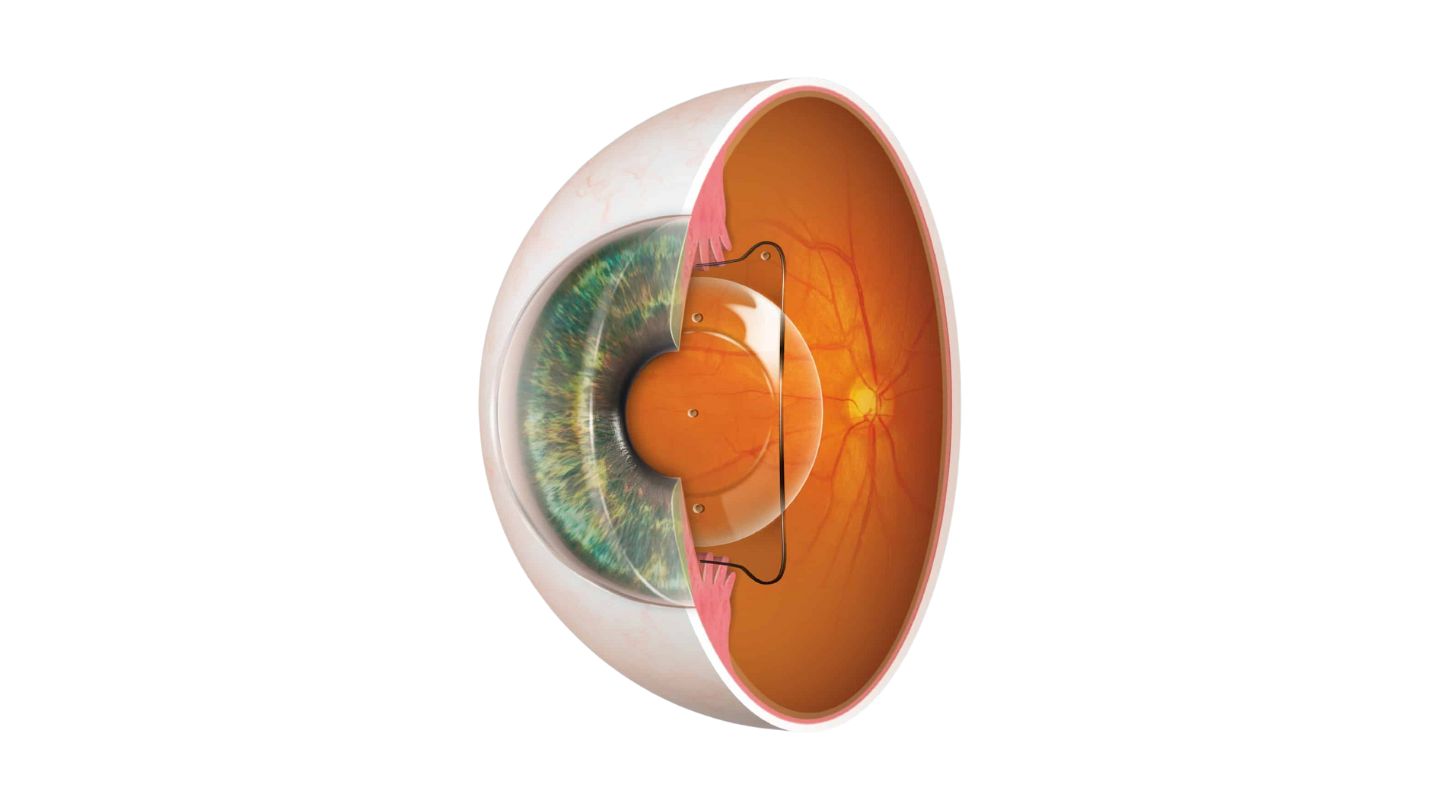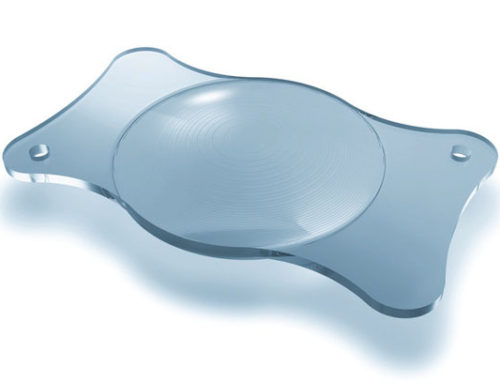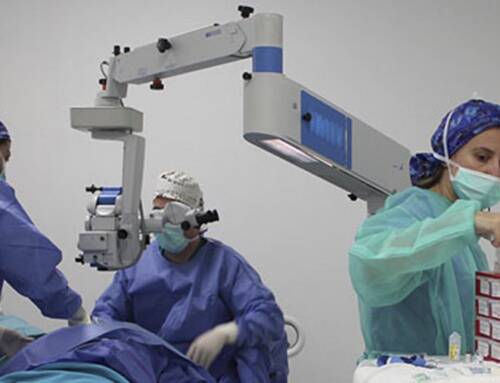ICL lenses represent an advanced and effective solution for those seeking precise vision correction without the inconvenience of laser refractive surgery techniques. If you are interested in learning more about this procedure and determining if you are a good candidate, we invite you to make a no-obligation appointment at our clinics in Malaga, Marbella, Fuengirola or Granada.
What are ICL lenses?
ICLs (Implantable Collamer Lenses) are medical devices designed to correct vision problems such as nearsightedness, farsightedness and astigmatism. Unlike traditional contact lenses that are placed on the surface of the eye, ICLs are implanted inside the eye, specifically between the iris and the crystalline lens. This procedure is fast, safe and offers excellent visual quality without modifying the cornea.
Advantages of ICL lenses
- Precise and reversible correction: ICL lenses allow vision correction without altering the structure of the cornea. Should the lens need to be removed or replaced in the future, the procedure is completely reversible, leaving the cornea intact.
- Less risk of dry eye: Unlike LASIK and PRK techniques that can temporarily induce dry eye, ICL lenses do not interfere with the corneal nerves, minimising this risk.
- UV Protection: ICL lenses can include ultraviolet blocking properties, protecting the lens, retina and macula from sun damage.
- High Patient Satisfaction: Most patients who opt for ICL lenses report extremely high satisfaction, with quality of vision often exceeding that obtained with glasses or contact lenses.
Who are ICL lenses suitable for?
ICL lenses are ideal for patients over 21 years of age with stable vision and high myopia (up to -18 dioptres), hyperopia (up to +10 dioptres) or astigmatism (up to 6 dioptres). They are also an excellent option for those who are not suitable candidates for other laser refractive surgeries due to thin corneas or dry eyes.
This procedure preserves the eye’s ability to focus on its own because, instead of replacing the crystalline lens as in cataract surgery, these lenses are added to the eye’s optical system to improve its refractive ability.
What do they correct?
The main objective of this procedure is to correct refractive errors and reduce dependence on glasses or contact lenses. The main problems they correct are detailed below:
- High Myopia: Myopia is a common refractive error that makes distance vision difficult. When myopia is high, phakic lenses can offer more precise correction than glasses or contact lenses.
- High Hyperopia: Phakic lenses may be a preferable option when farsightedness is significant and beyond the correction limits of other techniques such as LASIK.
- Astigmatism: Astigmatism is a condition that affects the shape of the cornea and can cause blurred vision. Phakic lenses can correct both myopia and astigmatism, providing sharper, clearer vision.
ICL Lens Implantation Procedure
Preparation and Anaesthesia
The surgery is performed under local anaesthesia with drops, which means that the procedure is painless and does not require general anaesthesia. This makes the procedure less invasive and with a quicker recovery.
Lens Implantation
The surgeon makes a small incision of less than 3 mm in the cornea to insert the folded ICL lens. Once inside the eye, the lens is unfolded and placed in its final position between the iris and the crystalline lens. The procedure is quick and usually takes 10-15 minutes per eye.
Recovery
Visual recovery is almost immediate. Most patients reach their maximum visual acuity within the first postoperative week. The procedure is quick, painless and does not require stitches, which facilitates a very rapid recovery. Within one or two days, patients can return to their normal activities.
How does it change the lives of your patients?
For patients who depend on glasses with a high prescription, being able to see the world with the same quality and even better than with their old glasses is a significant change in their quality of life. It’s a solution that not only improves vision, but also confidence and everyday comfort.
Frequently Asked Questions about ICL Intraocular Lenses
How long do ICL lenses last?
ICL lenses are designed to last a lifetime. However, it is possible that the patient may develop cataracts in the future, which would require removal of the ICL and fitting of a new intraocular lens.
Is ICL lens surgery painful?
No, the surgery is performed under local anaesthesia with drops and is painless. Most patients experience only mild discomfort during the procedure.
What happens if the ICL lens needs to be removed?
ICL lenses can be removed or replaced at any time if necessary. This is one of the great benefits of this type of vision correction.
Can I develop dry eye after surgery?
Dry eye is less likely to develop with ICL lenses compared to other techniques such as LASIK or PRK, as the corneal nerves are not severed.
For which types of patients are ICL intraocular lenses indicated?
They are indicated for patients over 21 years of age with stable myopia or hyperopia and with a dioptre range that is within the correction range of these lenses. Typically, these are patients with myopia up to about eighteen dioptres, astigmatism up to six dioptres and hyperopia up to six or eight dioptres.
What are the benefits over other procedures?
The most important benefit is reversibility. It is a lens that can be removed. Other laser corneal reshaping procedures are not reversible. In addition, ICL lenses can offer superior quality of vision and additional UV protection.
Why are they often unknown?
Many patients are aware that intraocular lenses are available to correct myopia, but it is generally more frightening to have a foreign body placed inside the eye. However, this surgery presents the same degree of difficulty as what are considered simpler surgeries such as laser and offers a quick and painless recovery.



Leave A Comment